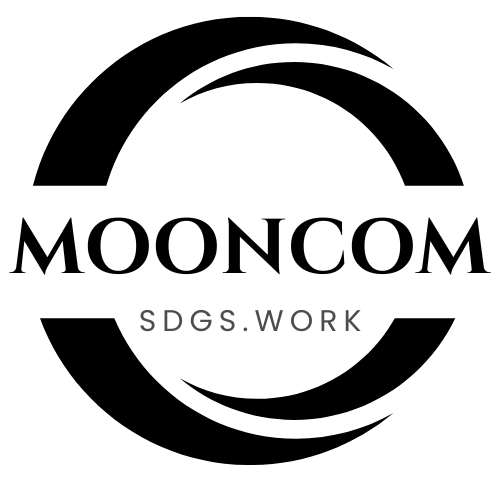
Community Health Access Accelerator
At Mooncom, we believe that equitable access to healthcare is foundational for sustainable societies. Our “Community Health Access Accelerator” initiative embodies this ethos by tackling barriers faced by underserved populations in sub-Saharan Africa and Southeast Asia. This project was conceived to address gaps in maternal and child health, immunization, and basic preventive care through a blend of technology, capacity building, and community engagement.
The cornerstone of the initiative is the implementation of mobile health (mHealth) platforms, utilizing basic mobile phones and smartphones to deliver crucial health information and to schedule telehealth consultations with certified practitioners. Local community health workers are trained by Mooncom experts to use these platforms for tracking vaccinations, diagnosing common ailments, and referring patients to regional clinics when necessary. Education modules—covering topics such as nutrition, hygiene, and disease prevention—are delivered through voice messages and visual infographics in local languages, ensuring accessibility regardless of literacy levels.
Additionally, Mooncom partners with local NGOs and ministries of health to set up solar-powered transportable health kiosks that serve as focal points for immunization drives, prenatal screening, and basic medical services during outreach campaigns. Data analytics tools are employed to monitor health trends, optimize resource allocation, and quickly identify emerging needs or outbreaks at the local level.
The results of this holistic approach have been transformative. In pilot sites, childhood immunization rates rose by over 30%, maternal visits nearly doubled, and early intervention for diseases such as malaria and diarrheal illness significantly improved outcomes. By integrating digital innovation with local capacity and strong monitoring, the Community Health Access Accelerator provides a scalable blueprint for improving health outcomes in emerging regions, fully aligned with SDG 3: Good Health and Well-being.
Sustainable Cities Blueprint
Mooncom is deeply committed to reimagining the future of urban spaces to be more sustainable, resilient, and inclusive. Our “Sustainable Cities Blueprint” project is a flagship initiative developed in collaboration with municipal governments, international development agencies, and private sector innovators in Latin America and Asia.
This project addresses the multidimensional challenges of rapid urbanization, resource scarcity, and social inequality. Our approach begins with comprehensive urban diagnostics that assess land use, mobility, energy consumption, waste management, and social infrastructure. Leveraging this data, Mooncom assembles interdisciplinary teams to design city-wide masterplans integrating sustainable mobility (such as electric public transit and cycling infrastructure), affordable green housing solutions, smart water and waste management systems, and accessible green spaces.
A vital component is the participation of residents, who join citizen forums and digital town halls to voice aspirations and influence project priorities. This ensures the co-creation of solutions that truly meet local needs. Through public-private partnerships, we mobilize investment for green building retrofits, renewable energy microgrids, and IoT-powered resource management platforms.
Notable achievements include reducing average city commute times, increasing renewable energy share in city grids by over 20%, and doubling the proportion of waste diverted from landfills through improved recycling systems. The project also emphasizes equity, ensuring affordable housing and services for low-income populations. Through the Sustainable Cities Blueprint, Mooncom demonstrates how integrated planning and collaborative governance can realize SDG 11: Sustainable Cities and Communities.
SDGs Transformation Program
Supporting corporations to authentically integrate sustainability is core to Mooncom’s mission. The “SDGs Transformation Program” is a bespoke consultative journey offered to multinational and domestic firms seeking to embed social and environmental responsibility into their DNA. The program begins with a foundational audit—assessing company policies, value chains, and impact through the lens of each relevant Sustainable Development Goal.
Following the diagnostic phase, Mooncom facilitates executive workshops and employee engagement activities, utilizing design thinking methodology to generate innovative approaches for business transformation. Action plans may include transitioning product lines to sustainable materials, implementing renewable energy purchasing agreements, improving gender diversity in leadership, or developing community investment strategies.
During implementation, Mooncom supports project management, develops tools for tracking progress, and fosters knowledge exchange through internal webinars and cross-company learning cohorts. Reporting frameworks are customized for stakeholder transparency, integrating global standards such as the United Nations Global Compact and GRI (Global Reporting Initiative).
Clients in the program have reported both measurable impact—such as halving greenhouse gas emissions within five years and launching successful new “green” products—as well as intangible benefits, including improved employee morale, stronger investor relations, and enhanced corporate reputation. The SDGs Transformation Program empowers the private sector to lead on sustainability, propelling progress toward all 17 SDGs.
Climate Resilience Action Lab
Mooncom’s “Climate Resilience Action Lab” stands at the forefront of innovative approaches to climate change adaptation and mitigation. Focused on vulnerable regions in both developed and developing countries, this multi-stakeholder initiative combines scientific expertise, local knowledge, and cutting-edge technology.
The project’s activities span several fronts: conducting climate risk assessments for urban and rural regions, co-designing adaptation strategies with local governments and civil society, and piloting interventions such as early warning systems, drought-resistant agriculture, and ecosystem restoration. A major emphasis is placed on nature-based solutions—restoring wetlands, forests, and mangroves that buffer communities against floods and storms while enhancing biodiversity.
Mooncom’s team facilitates capacity-building workshops so that local officials and entrepreneurs can access international climate finance, deploy renewable energy microgrids, and adopt sustainable water management practices. Digital mapping and remote sensing technologies support ongoing monitoring and transparent reporting of ecosystem health and project outcomes.
Among its successes, the Climate Resilience Action Lab has enabled multiple coastal cities to halve flood risks, increased smallholder farmers’ yields by over 20% through resilient agriculture, and sequestered thousands of tons of carbon annually via ecosystem restoration. This initiative powerfully advances SDG 13: Climate Action, proving that with collaboration and innovation, the world can move from vulnerability to resilience.
